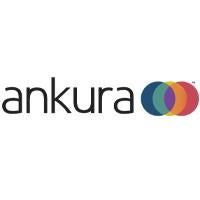As cryptocurrencies, non-fungible tokens (NFTs) and other cryptoassets continue to grow in popularity – if not always in value – the number of disputes is also increasing. The innovative, fast-moving, lightly regulated and often “Wild West” nature of the market means there are frequent disagreements between the parties involved. The fact that it is decentralized and international, spanning different countries and legal systems, makes it harder to work out who is in the wrong and how to resolve arguments between crypto issuers, investors, trading platforms and other participants.
Probably the highest profile example to date is the legal action initiated last year by thousands of claimants seeking hundreds of millions of dollars in damages from Binance, the world’s biggest crypto exchange. The case will go to arbitration and is being led by US law firm White & Case and Swiss litigation finance provider Liti Capital, under Hong Kong International Arbitration Centre rules.
In fact, Binance and other crypto firms prefer arbitrators to traditional courts. Their terms and conditions require that all claims be resolved through legally binding arbitration. That is why Nifty Gateway, an NFT (non-fungible token) auction house, pursued an investor for non-payment of an NFT through JAMS, a New York arbitration service provider.
And in 2020, a class-action lawsuit against entities behind crypto company MakerDAO, alleging that they misrepresented the risks of investment, was referred to the American Arbitration Association.
What is arbitration?
First of all, it’s worth saying, I’m not a lawyer. However, a good search on the Cambridge Dictionary, arbitration is “a process in which an independent person”, an arbitrator, “makes an official decision that ends a legal disagreement” between people or companies “without the need for it to be solved in court”.
Cases are heard by a tribunal of one or more arbitrators, using rules and administrative support provided by arbitral institutions such as the London Court of International Arbitration (LCIA), Hong Kong International Arbitration Centre, Singapore International Arbitration Centre and the International Centre for Settlement of Investment Disputes which is part of the World Bank. Institutions like these have a successful track record of helping resolve commercial disputes of all kinds across many jurisdictions.
Other key aspects of arbitration include:
-
All parties must agree to use arbitration. Usually they agree to use it at the same time they enter into a contract, in an arbitration clause. However, if such a clause is not in the contract they can still enter into an arbitration agreement when a dispute arises if both sides agree.
-
It is more flexible than court proceedings.
-
The party starting the arbitration is called the “claimant” because they are making a claim against the other party, and the other party is called the “respondent” because they are responding to the claim.
-
The parties present their positions through “submissions”, usually via legal representatives, in writing or orally or both.
-
The arbitrator(s) decide the dispute and make an “award”.
-
Arbitration makes it easier to obtain money kept overseas. If a losing party refuses to pay, it is easier for the winning party to enforce an arbitral award in a foreign country than a court judgement. Almost every country in the world has agreed to recognise and enforce awards made by arbitrators.
-
Arbitral awards are almost always final, whereas court judgements can usually be appealed to a higher court.
Arbitration for crypto disputes
Arbitration has many benefits as a way of resolving disputes arising from cryptoassets. “It provides certainty as to jurisdiction, a neutral forum and, in principle, widely enforceable awards,” says law firm Clifford Chance in a recently published report, Arbitration for Cryptoasset and Smart Contract Disputes.
It is a confidential process, which is especially important for disputes involving commercially sensitive information. Another advantage is the ability to appoint arbitrators with specialist knowledge to handle highly technical matters such as coding and other aspects of the blockchain and other types of distributed ledger technology (DLT) that underpin cryptoassets and smart contracts. Smart contracts are digital contracts stored on a blockchain that are automatically executed when predetermined terms and conditions are met by each party.
Andrea Utasy Clark, a Senior Associate at law firm Pinsent Masons, in an analysis published this September, explains that cryptocurrency disputes “are well suited for, and are increasingly being referred to, arbitration”. This is because “the decentralized nature of crypto aligns with the neutrality of arbitration, and both foster participation across multiple jurisdictions” .
The types of crypto disputes currently being dealt with through arbitration, she adds, include breach of contract claims by investors against platforms arising from lack of access to the trading platform, and by platforms against investors arising from failure to make payment; misrepresentation claims by investors against platforms concerning the represented risks of investment; and claims relating to the enforcement of arbitral awards in national courts.
In September, I attended Mishcon de Reya retail metaverse seminar, and the topic of Metaverse brand valuation popped up. How will an arbitrator deal with a dispute on the metaverse? I’m pretty sure the next ten years will see a boom in online sales within the Metaverse which will undoubtedly increase the number of arbitrations between suppliers, coders, metaverse noisy neighbors, etc. We are already seeing several consultancy firms and law firms enter the metaverse for this reason.
The Binance case
The arbitration with crypto platform Binance – which operates around the world and is incorporated in France, Spain, Italy, the UAE, and several other countries, – was started by users who claim to have lost millions when the platform failed on May 19, 2021, leaving them unable to exit their positions while crypto prices dipped. US law firm White & Case is co-ordinating the action for claimants, while Swiss litigation finance provider Liti Capital is funding the case up to $5m in exchange for a return on the investment plus 30% of the award or settlement.
Liti Capital is a private equity company that raises funds from retail and institutional investors to invest in legal action. There are now thousands of claimants in the Binance claim in what Liti Capital believes is “the first ever group action in the crypto sector” and “a landmark event in defining how organisations operating in the sector behave and treat their customers”. David Kay, Liti Capital’s CEO, said “crypto and blockchain are the future but they’ve just got to get cleaned up, it is the Wild West out there”.
Under Binance’s terms and conditions, users seeking compensation are required to file disputes with the Hong Kong International Arbitration Centre, which is costly for an individual. Details of how to join the group action is available on the website www.binanceclaim.com, which has been set up by Liti Capital and others representing the claimants. It explains that traders who believe they may be entitled to compensation should contact Binance first, and if they are unable to resolve their dispute “they may pursue claims against Binance in international arbitration”.
An arbitral award does not guarantee payment
Even if claimants win an arbitral award it may still be difficult, even impossible, for them to receive the money. First, the assets of the respondent may be hard to track down and, even if they are located, they may be impossible to retrieve. Second, although most countries recognize arbitral decisions, some may not enforce a cryptoasset-related award if cryptoassets are illegal in that country, or for other reasons relating to these types of asset.
“Given the nature of crypto and the players involved, the risk of dissipation of assets is… acute, and it is often more complicated to establish and quantify loss,” writes Pinsent Mason’s Andrea Utasy Clark. “Further, some jurisdictions have taken the view that enforcing an award made in a crypto-related arbitration may run contrary to the public policy of that jurisdiction and preclude enforcement.”
The public policy exception is written into the New York Convention on the Recognition and Enforcement of Foreign Arbitral Awards, and has been used on a number of occasions. For example, the Shenzen Intermediate People’s Court in China set aside an arbitral award issued by an arbitral institution on public policy grounds because, as Ms. Utasy Clark writes, “China has banned crypto and does not recognize digital currencies as having any legal status”.
As with any legal action, pursuing a crypto-related claim through the arbitration process is not a simple matter. However, if an aggrieved party cannot achieve redress by dealing directly with the party alleged to have caused that grievance – using either in-house legal expertise or an external law firm – then arbitration if probably the best, and often the only, alternative.




 />i
/>i

